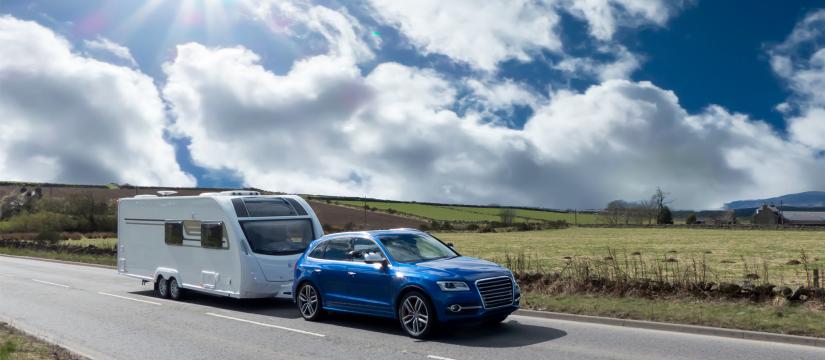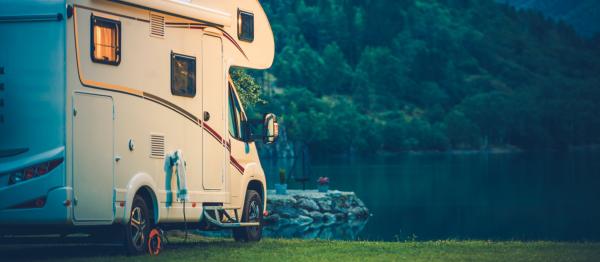
A towing safety checklist
At times, towing a caravan can be difficult – especially if it’s your first time. Controlling a heavy mobile home, combined with mixed weather conditions and new driving techniques can be extremely challenging. But as the saying goes: practice makes perfect. Naturally, the more you tow a caravan the easier it’ll get.
Preparation is key. Just like a pilot runs through pre-flight checks, you should always run through pre-towing checks. This means making a checklist and triple checking it before even thinking about hitching your caravan up to your vehicle.
To help you master the art of towing, we’ve prepared this handy safety checklist so you can be sure of all the important things you need to do before taking off on your next road trip.
Pre-trip towing safety checklist
REGULAR MAINTANCE
Regular maintenance is essential for safe driving and towing. Routine checks of your vehicle, tow vehicle and caravan or trailer will reduce the likelihood of breakdowns and reduce any unnecessary risk, making travelling on roads safer for you and other drivers.
Keep on top of this by servicing your vehicle and caravan or trailer at least twice a year. If you’re not confident to do the job yourself, take it to a professional service technician.
Regular routine checks should include:
TYRES
Tyre condition:If the tread is low, it may be time to replace them. Also check the condition of each tyre – and don’t forget to check your spare tyre(s).
Tyre pressure:Check all tyres have the correct PSI. Your tow vehicle or caravan may have recommended tyre pressures to follow when towing. Double check with your vehicle service provider if you’re unsure.
Wheel bearings: Caravan wheel bearings are prone to early wear and need to be checked more frequently. Unlike car wheel bearings, hearing the grinding of failed bearings on a caravan is almost impossible. Ensure the bearings for all tyres are correctly fitted. Just like you’d carry a spare tyre, make sure you carry the correct spare replacement bearings in case any of them get damaged. Check the wheel hubs on a regular basis to make sure they’re in working condition. For example, if one is significantly hotter than the matching opposite wheel, it can indicate either a brake or bearing problem that should be attended to immediately.
BRAKES & SUSPENSION
Brakes:Always check your brake pads and adjust the brake controller so that your caravan brakes share the same load as your car. This is important because if the load isn’t evenly distributed it can cause your caravan brakes to overheat and lead to further issues such as scoring, glazing or cracking. If your brakes heat up the hub enough, wheel bearing grease can boil and cause dry bearings which will eventually cause them to fall apart.
Suspension:Because your suspension is out of sight, it may be left out of mind. But it’s just as essential to check as any other part of your vehicle. The type of suspension your caravan has will depend on the type and model. The general rule of thumb is to check for wear and tear, cracks on springs, pins, bolts, bushes and other moving parts.
Bare in mind, checking your breaks and suspension requires your vehicle to be raised and the tyres removed. If you’re unsure of how to test the condition of both brakes and suspension, take your caravan or trailer to a professional.
BODY STRUCTURE
Prior to any road trips, especially off-road adventures, your vehicle may require a professional inspection to ensure all parts are operating correctly. Professionals will check for:
- Loose panels
- Condition of the chassis
- Condition of the nuts, bolts and fasteners
CONNECTIONS
Coupling and tow ball:Ensure both coupling and tow ball match and fit correctly. Adjust and lubricate the ball and coupling to maintain its condition for longer.
Safety chain connection:Check the condition of the chain(s) and safety pin. Ensure the U-bolt on the chain is the correct grade and size.
Breakaway system:Check all components are installed and secured correctly. If you’re unsure, refer to the manufacturer’s manual.
LIGHTS & VISIBLITY
Clean lights will help you see where you’re going and provide clearer visibility. Wipe down the lights on all vehicles and check the electrical connections between the car and caravan to make sure they’re all fully functioning. These lights include:
- Headlights
- Brake lights
- Reversing lights
- Clearance lights
Front and rear indicators
Number plate light
5/7/12 pin plug. Ensure it’s not corroded or damaged. Check the pins are spaced apart properly to ensure it properly connects to one another. Using a contact cleaner spray can help keep the connections electrically conductive.
TOW VEHICLE MAINTENANCE UNDER THE BONNET
It’s a big job for your everyday vehicle to take on the load of a caravan or trailer, so give it the care and attention it deserves. If you tow regularly expect to spend more time on servicing and maintenance. Before taking off on your road trip, be sure to check the levels of the liquids below and if they need filling, top them up:
- Oil
- Brake fluid
- Coolant
- Windscreen wiper fluid
- Power-steering fluid
ADDITIONAL CHECKS
Although it may seem really obvious, make sure you turn of all gas bottles before you travel. Inspect for cracks or leaks in the LPG regulator, gas hose and water storage tank. Don’t risk using old parts if they’re worn out. Your safest bet is to replace them with new ones and ensure they’re fitted and function correctly.
REGISTRATION & INSURANCE
Ensure your registration is current, and the plate is clean, in good condition and visible to other drivers.
Keep in mind that it’s illegal to drive any vehicle uninsured. To help you on the road, NRMA Insurance offers a range of Caravan and Trailer Insurance to protect your touring caravan, camper trailer, on-site caravan, or trailer for accidental damage, theft, fire, storm and more. For more information visit nrma.com.au or phone 132 132 to chat to one of our friendly insurance specialists.

